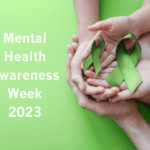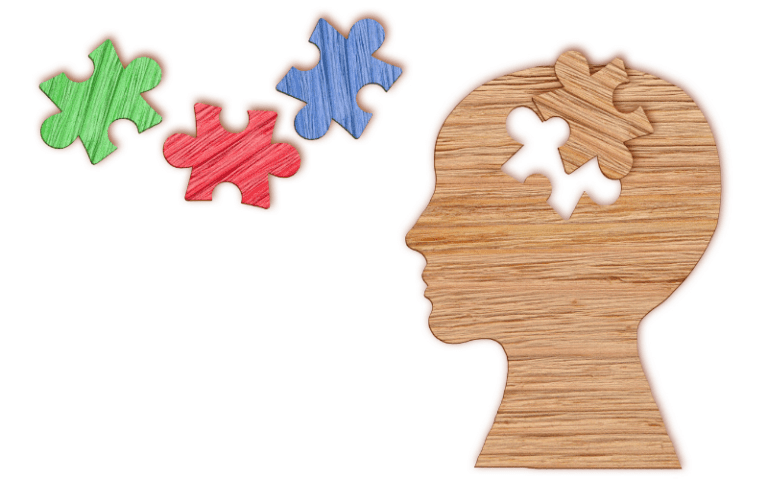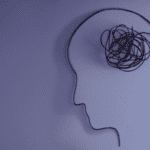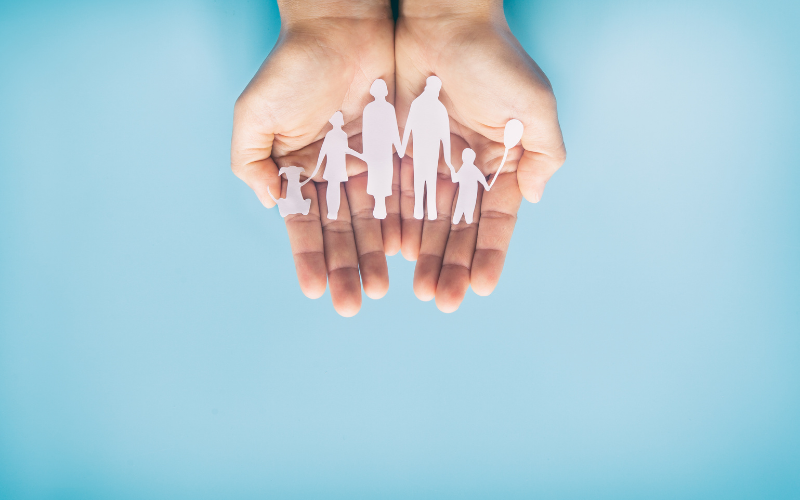Mental Health First Aid
During Mental Health Awareness Week, (15th – 21st May 2023) it is crucial to emphasise the importance of mental health first aid.
Just as physical first aid helps address physical injuries, mental health first aid provides essential support and assistance to individuals experiencing mental health challenges. This week serves as a reminder to educate ourselves and others on recognising the signs of mental distress, offering empathetic listening, and connecting individuals to appropriate resources.
By prioritising mental health first aid, we can create a more compassionate and supportive society for all.

What is first aid?
A First Aider provides initial assistance to someone in need of help, this initial help is given either in place of professional help or before professional help is accessed. The principles for Physical and Mental Health First Aid (MHFA) are similar in that both give support to someone in need of assistance before professional help is on-hand.
What is mental health?
Mental health is our state of mind, our emotional and psychological well-being. It determines how we cope with day-to-day issues.
Mental Health is complex and changeable, it needs to be acknowledged and looked after.
What is mental ill health?
Mental ill health by its very definition is when we are mentally unwell, we can feel unable to cope with stress and anxiety which can lead to depression and addictive behaviour. Mental ill health can lead to a feeling you cannot see a way forward.
In contrast, people with good mental health are capable of setting goals and being able to achieve them.

Why mental health first aid?
- 1 in 6 working-age adults have symptoms associated with poor mental health.
- 1 in 4 people experience poor mental health each year.
- Poor mental health accounts for 72,000,000 (72 million) working days lost in the UK per year.
- In 2020, 1,752 people died in road accidents but 6,749 died by suicide.
Mental health first aiders are required because:
- Poor Mental Health is common
- There is so much stigma associated with poor mental health
- Professional help is not always available immediately

Self-Care
To be an effective Mental Health First Aider you need to be mentally well yourself.
You need to engage in activities that look after your own mental health and actively manage your own illness if/when it occurs.
You may need to seek professional help and support in addition to practising self-care.
What influences our mental health?
There are many factors that can cause poor mental health including:
- Alcohol and drugs
- Poor parenting
- Illness and disability
- Abuse
- Traumatic events
- Poverty
- Unemployment
- Poor housing
- Poor education
- Stigma
- Discrimination
There are protective factors that can contribute to positive mental health including:
- Positive Parenting
- Confidence
- Physical activity
- A balanced and healthy diet
- Loving and respectful relationships
- Values and beliefs
- Stable home
- Rest


The 5 main actions for Mental Health First Aid
ALGEE
Approach the person, assess the situation and assist with any crisis
Listen and communicate without judgement
Give Support and information
Encourage the person to seek the appropriate professional help
Encourage other support
Mental health first aid for a panic attack
Panic attacks develop quickly and normally reach their peak within 10 minutes. Common indicators of a panic attack are:
- Sweating, trembling and shaking
- Chest pain or discomfort
- Fear of dying
- Feeling dizzy
- Palpitations or increased awareness of heartbeat
Ask the person if they know what is happening and if this has happened before, do not assume you know what they need, ask them if they know what might help them.
If the person is not known to you then introduce yourself and try to get them to a safe comfortable place to sit down.
Panic attacks can resemble a heart attack so try and determine if the person has had a panic attack before and if not administer or seek help for physical first aid.
Always communicate effectively, and reassure the person that the thoughts they are experiencing will pass. Acknowledge that their thoughts do feel real but they are safe. It is important you remain calm yourself.
Use distraction methods to try and move the person’s focus, and encourage them to think about things they can see, hear, smell and touch. Try to help them to take slow deep breaths to slow down their breathing.
Once the panic attack has subsided try to encourage the person to seek professional help to manage the attacks.
Mental Health First Aid for traumatic events
Traumatic events are the exposure to actual or threatened death, violation or serious injury. A person may be a witness to an accident and not directly involved but it would still be a traumatic event.
- Individual traumas can include accidents or assault which can be physical, emotional and sexual.
- Ongoing traumas can include abuse, neglect, bullying and torture.
- Mass traumas can include natural disasters, acts of terror and pandemics.
Most people will recover from experiencing a traumatic event within 2 to 4 weeks but some people will develop Post Traumatic Stress Disorder.
Sometimes memories of traumatic events can re-occur suddenly often weeks, months or years after the actual event.
A person may experience trauma immediately after experiencing an event but there may be a delayed reaction. If you are assessing someone you know has experienced a traumatic event you will need to look for signs of distress over the weeks following the trauma.
Let the person know that everyone deals with distress from trauma at their own pace.
If you are helping someone unknown to you then be sure to introduce yourself, try to create a safe space and give them water.
Try and use the focus technique to calm someone in distress.
DO NOT encourage the person to share the traumatic event with you, let them talk to you and do not share your own experiences or interrupt.



Mental Health First Aid for Suicide
Suicide is where a person has suicidal thoughts or behaviours. Thoughts are where the person feels they can no longer continue to live. Suicidal behaviour is the planning, preparation and acting on suicidal thoughts. For many years there has been a stigma around suicide; to counter this we must be careful with our language.
The phrase ‘commit suicide’ is not appropriate, this dates back to the time when suicide was a crime, it was in fact de-criminalised in 1961. When someone has died the terms ‘died by suicide’ or ‘took their own life’ are the appropriate terms to use. We should never refer to an attempted suicide as successful or unsuccessful, the outcome is ‘life’ or ‘death’.
1 in 15 people have suicidal thoughts and 1 man dies every minute from suicide worldwide.
You are more likely to meet someone having suicidal thoughts than you are to meet someone having a heart attack.
Signs and symptoms of suicidal thoughts and behaviour include:
- Expressing an intent to hurt or kill themselves
- Talking or writing about death, dying or suicide
- Engaging in reckless activities
- Withdrawing from friends, family or society
- Seeking ways to kill themselves such as access to pills, weapons or other means
When helping a person who you believe is suicidal or having suicide thoughts, do not be afraid to ask the question – Are you having suicide thoughts? It is not a question that should be avoided. Ask them if they have a plan and how detailed the plan is, have they attempted suicide before? Have they told anyone else how they are feeling?
If the person requires immediate help then call 999, if they are not imminently in danger then seek help through organisations such as the Samaritans or text SHOUT to 85258.
Work with the person to create a plan to keep them safe.
As a Mental Health First Aider, you are not a qualified councillor or a professional trained to deal with long-term mental health illness, but you will be able to recognise when someone is experiencing poor mental health, provide initial support and point them in the right direction for more professional assistance.
Being a good listener, having empathy and understanding stigma and positive language around poor mental health are the qualities required to be a good Mental Health First Aider.
Richard Austin
KFA Connect – Director
18/05/2023
Want to know more? Get in touch with our team today.


